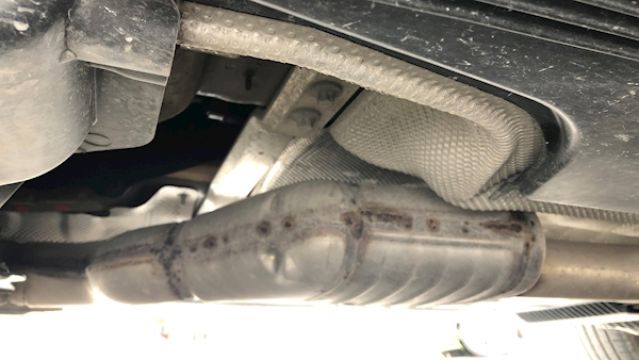The catalytic converter is simply a section of your exhaust where gases from the engine are passed over and through a metal (the catalyst in question) that breaks down some of the nastier pollutants within. The tempting part for the thieves is that the metal used in catalytic convertors is usually a precious one — palladium, rhodium, and platinum are most commonly used. As little as three-to-seven grammes of such metals will actually be in the honeycomb structure inside the cat’ but that could be worth as much as €150 once extracted. If it’s palladium, then it could be worth twice that.
The Garda Stolen Motor Vehicle Investigation Unit, attached to the Garda National Bureau of Criminal Investigation are working together to prevent and detect offences of catalytic converter theft and the main piece of advice for motorists is to be careful where, and when, you park. Pre-lockdown, park-and-ride sites were the most commonly targeted, with 55 per cent of thefts occurring in such locations, usually in late morning or afternoon.
Before the lockdown, cars parked on the street, or on a driveway, were generally less tempting for thieves, but given the changes in habits, post-Covid, it’s likely that the criminals’ habits are changing too. “Car parks and roads or streets are seeing a higher proportion of offences than in the past” a Garda spokesman told BreakingNews. “These locations are being targeted when cars are parked in greater volumes at these locations. For example, car parks are targeted in the late morning to late afternoon while roads and streets are targeted around lunchtime and overnight. Residential locations are targeted mainly overnight.”
Other advice includes having your car’s VIN number stamped onto the cat, or having a mechanical physically weld it to the car’s chassis, as that will make it far more difficult to remove. Parking close to a wall, to make it harder to jack the car up, also helps, as does having automatic lights on your driveway, triggered by a motion sensor.







